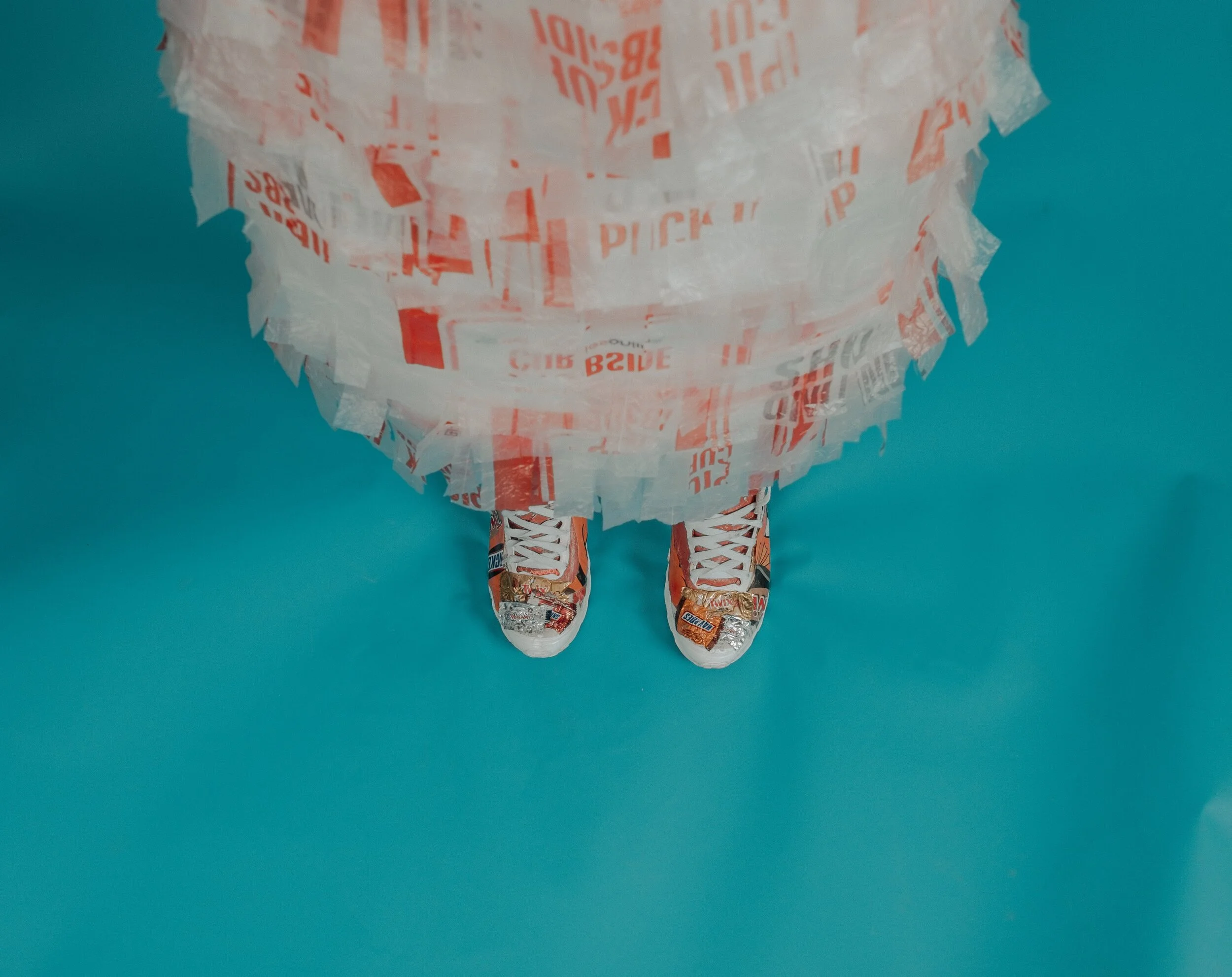How Did Plastic Get a Bad (W)rap?
How Did Plastic Get a Bad (W)rap?

Maybe you already know the answer to this question as plastic has been all over the news and our timelines for many years. But, Plastic-Free July has got us thinking at Curlicue. How did plastics become so awful? Are there any friendly plastics out there? Is plastic our worst toxic relationship so far?
It won't go away
Just like that ex that slides into your DMs, plastic lingers long after you've dumped it. Plastic doesn't decompose as easily as bio (natural) material. Dependent on the type of plastic, it can take between 450 and 1,000 years for plastic to degrade. Of the 9.1 billion tons of the stuff humans have produced since 1950, 6.3 billion tons of it has become waste, and is probably still out in either landfill or the ocean.
Plastic is also durable; it is the perfect material for many products, and not all plastic is awful, but, single-use plastic is. Its lifecycle is short, so it's incredibly wasteful when we consider the environmental impact of its manufacture and the fact that it'll stay on the planet for such a long time. But, long-use plastics, like the kind found in Tupperware, appliances, and domestic items, are fine - as long as you reuse them.

It’s a cheapskate
One of the main problems that suppliers have with moving away from plastic is that it's so cheap to produce. Some materials can be ten times more expensive than plastic. For many companies, this is a cost they claim they can't justify. At Curlicue, we knew we didn't want to make our beautiful wrapping paper if plastic was used in any way - it was a dealbreaker. For many companies, their products are so ingrained in plastic, they don't want to look for alternatives.
It has bad genes
Plastic is made from coal, crude oil and natural gases. All of these foundation resources are farmed out of the planet in ways that further damages our eco-system. From fracking to irresponsible drilling, we are destroying our world in the pursuit of plastic. Also, these resources are finite - as we move further towards renewable energy sources (such as wind and solar power) the concept of moving away from using these resources in plastic manufacturing becomes increasingly realistic.
It’s a teeny, tiny, sea-life destroyers
In 2018, the UK Government banned the use of 'micro-plastics' in items like toothpaste and body scrubs as these tiny plastics were being washed into oceans and posing enormous problems for the wildlife. But micro-plastics still exist legally. Most florists use a product called 'oasis' to keep their floral arrangements alive out of water. It's made entirely of micro-plastics and erodes into these particles that then go into the sea and mess with the eco-system. Considering the planet is 71% water, we should take better care of it.

It’s not an animal lover
Speaking of the ocean, the larger plastics - bottles, plastic bags, food packaging - tend to end up in the sea. The effect that this has on sea-life is heart-breaking. In 2017, Sky released a documentary called A Plastic Whale, the film followed a team of researchers as they investigated the death of a whale whose stomach was full of plastic. Animals are dying every day because of plastic pollution.
What can we use instead?
Many companies and researchers are looking at alternatives to plastic from biodegradable compounds such as, milk-based plastics, liquid wood, and PLA which looks and acts like polythene but is biodegradable and made of corn. The world's smartest cookies are on it!

I'm clever, but not cookie clever. What can I do?
At Curlicue, we're all about simple swaps. There are so many ways you can rid your life of single-use plastic. Whether it's swapping your plastic toothbrush for a bamboo option or ditching your plastic-coated wrapping paper for one of our beautifully designed, plastic-free prints - there are many ways you can reduce your intake. Sometimes it’s impossible to avoid, and that’s okay. If you have to use it…
Sing it with us now; 'Reduce, Reuse, RECYCLE!'
In the UK, we've really upped our plastic recycling game. In 2000 we recycled over 13,000 tons of the stuff - not bad. But, in 2019, we recycled 370,000 tonnes in one year (that’s 37 Eiffel Towers for you visual learners out there). 70% of disposed plastics in the UK are now 'recovered' - this means that they don't go to landfill, but are reused in another way like making new plastic bottles for drinks.
Every council in the UK has different rules for curbside recycling. Some are better than others (FUN FACT: Wales has the third-best household recycling rate in the world) so it’s worth checking what you can recycle in your household bins.
Most packaging also tells you whether or not it's recyclable, but if you’re unsure, we love the RecycleNow tool. If you want local recycling locations, they’ll have all the answers.

Spread the word
We want to hear all about your adventure in Plastic-Free July! Be like plastic, and slide into our DMs @Curlicue_uk and tell us about the Simple Swaps you’ve made this month. If you’re still looking for swaps to make, try browsing our plastic-free, eco-friendly, vegan and beautiful wrapping paper.

